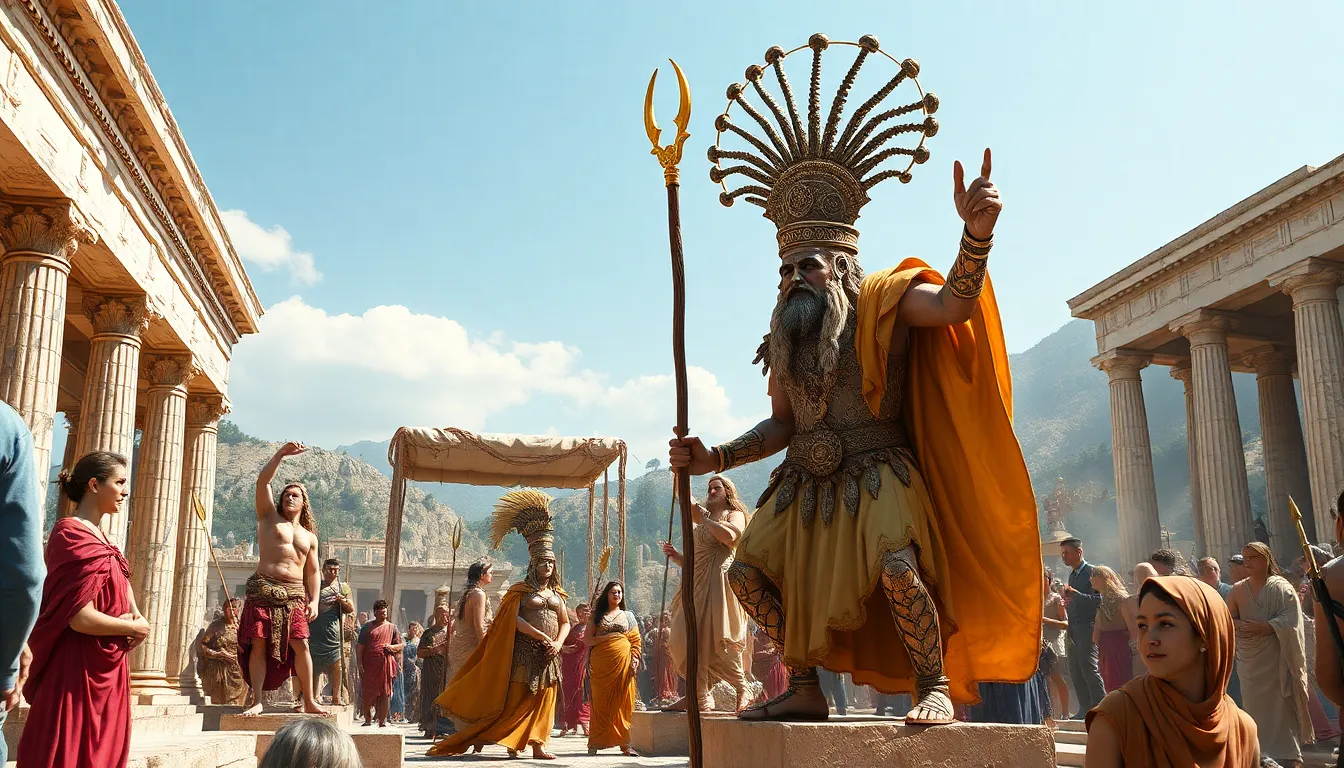The Bizarre and Beautiful: Unusual Festivals of Ancient Greece
I. Introduction
Ancient Greece is renowned for its rich cultural heritage, which has significantly influenced Western civilization. Its mythology, philosophy, art, and political systems are foundational to many modern concepts. Festivals played a crucial role in the daily lives of the Greeks, serving as opportunities for worship, community bonding, and celebrating the cycles of nature.
Among the many festivals celebrated in Ancient Greece, some stood out for their bizarre and beautiful characteristics. These unique celebrations were not only religious observances but also reflections of the society’s values, beliefs, and artistic expressions.
II. Dionysia: The Festival of Wine and Theatre
Dionysia, held in honor of Dionysus, the god of wine and fertility, was one of the most significant festivals in Ancient Greece. It originated in Athens and was celebrated annually in the spring. The festival was a vibrant showcase of drama, music, and dance, reflecting the profound cultural importance of theatre in Greek society.
One of the most unique aspects of Dionysia was its rituals, which included:
- Processions with wine and sacrificial offerings
- Choral performances and theatrical contests
- Public feasting and celebrations
The festival marked the evolution of drama, as playwrights like Aeschylus, Sophocles, and Euripides premiered their works during this time, forever changing the landscape of theatre.
III. Apatouria: The Festival of Brotherhood
Apatouria was a festival that celebrated the ties of kinship and community, particularly among the Athenian citizens. It took place in the fall and was crucial for reinforcing family connections and civic identity.
The festival involved various ceremonies, including:
- Rituals to reaffirm family bonds
- Initiation ceremonies for young males into the phratry (brotherhood)
- Feasting and communal gatherings
Apatouria emphasized the importance of identity and citizenship in Ancient Greece, forging a sense of belonging and loyalty among the participants.
IV. Thesmophoria: The Festival of Fertility
Thesmophoria, dedicated to Demeter and her daughter Persephone, was a significant festival celebrating fertility and the harvest. This festival was unique in that it was exclusively for women, highlighting their vital role in agriculture and family.
The rituals of Thesmophoria included:
- Processions to sacred sites
- Rituals involving the burial of sacred objects
- Fasting and feasting to honor the deities
This festival was intimately connected to the agricultural cycles, symbolizing the earth’s fertility and the transformation of life through the seasons.
V. The Anthesteria: Celebrating the Wine Harvest
The Anthesteria was a three-day festival held in honor of Dionysus, celebrating the new wine harvest. This festival was marked by various unusual customs and ceremonies, including a deep connection to the spirits of the dead.
Key aspects of the Anthesteria included:
- The opening of wine jars and tasting of new wine
- Rituals to appease the dead, with offerings made to the spirits
- Processions and public celebrations
Wine held immense cultural significance in Greek life, symbolizing joy, festivity, and the divine connection between humanity and the gods.
VI. Gymnopaedia: The Festival of Athleticism and Arts
Gymnopaedia was a festival dedicated to physical prowess and artistic expression, celebrated in Sparta. It highlighted the importance of athletic competitions and the cultivation of the body.
The festival featured several unique events, such as:
- Competitive athletic events, including running and wrestling
- Artistic performances, including music and dance
- Rituals that honored the gods and celebrated human achievement
Gymnopaedia exemplified the blend of body and spirit in ancient Greek culture, showcasing the belief that physical excellence was linked to moral and intellectual virtues.
VII. The Delia: A Multicultural Festival on Delos
The Delia was a significant festival held on the sacred island of Delos, dedicated to Apollo and Artemis. It attracted participants from various city-states, making it a melting pot of cultures.
This festival included uncommon rituals such as:
- Processions and sacrifices to the gods
- Music and dance performances that showcased diverse traditions
- Competitions in athletics and poetry
The Delia served as a reminder of the interconnectedness of the Greek world, emphasizing shared beliefs and communal celebrations despite regional differences.
VIII. Conclusion
The diverse and creative festivals of Ancient Greece reflect the complex tapestry of its culture and societal values. From the theatrical spectacles of Dionysia to the communal ties celebrated in Apatouria, each festival offered a unique glimpse into the lives and beliefs of the ancient Greeks.
These traditions have left a lasting legacy, influencing modern celebrations and the way we approach community and spirituality. Exploring the richness of these cultural histories enhances our appreciation of the past and its impact on contemporary life.




